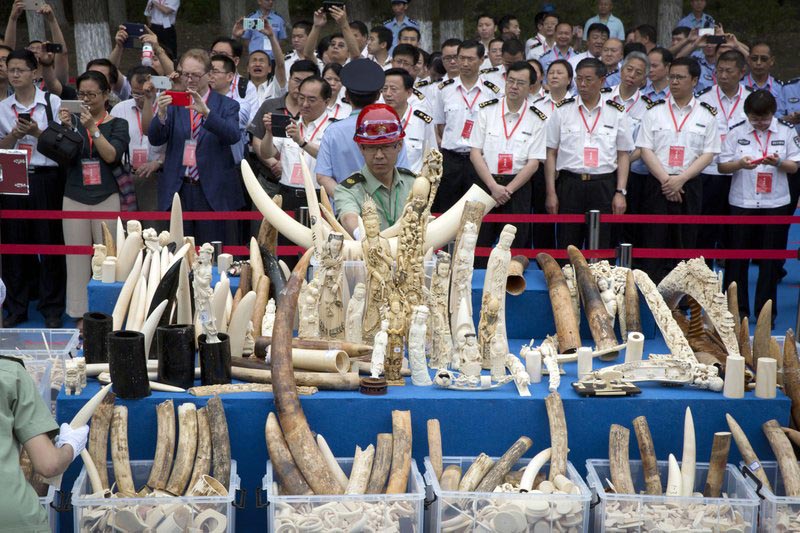Watchdog says Chinese town is major ivory smuggling hub
HONG KONG: An environmental watchdog group says its investigation has found that a little-known town in southern China is a major hub for ivory smuggling by organized criminal gangs.
The Washington, DC-based Environmental Investigation Agency said in a report Tuesday that it uncovered a network of ivory trafficking syndicates operating out of Shuidong in Guangdong province, near Hong Kong.
The group says its investigators worked undercover posing as buyers to win the trust of a smuggling group and tracked one of its shipments from Mozambique.
Syndicate members told the EIA theirs was just one of 10 to 20 ivory trafficking groups operating out of Shuidong, the group said.
They claimed that 80 percent of all poached ivory smuggled from Africa to China passes through the town — a startling figure that’s impossible to corroborate.
China has taken steps to curb the demand for ivory that wildlife groups say fuels the mass slaughter of tens of thousands of elephants in Africa every year. It started shutting down ivory carving factories in March and is planning to ban all domestic retail sales by the end of the year. Hong Kong, a major transshipment hub for illicit wildlife trading, is preparing to ban local ivory sales by 2021.
The EIA said Beijing needs to follow up its policies with enforcement, though its decision to close down its domestic ivory market was “admirable.”
“What EIA discovered in Shuidong, however, clearly shows transnational criminal networks are operating with near-total impunity,” said Mary Rice, the group’s executive director. “It is vital that enforcement agencies in Africa and China put these criminals out of business immediately.”
The group said it shared its findings with the “relevant enforcement authorities.” Local government officials said they weren’t aware of the report while police in Maoming city, which includes Shuidong, did not immediately respond to a request for comment.
The EIA investigators encountered the Shuidong syndicate members last year in Mozambique, which has become more popular with Chinese smugglers after neighboring Tanzania cracked down. Shuidong emerged as an ivory trading hub thanks to its role as a center for the sea cucumber trade, the report said. As China grew wealthier over the past few decades, Shuidong traders fanned out to Africa to feed growing demand for the delicacy. They were well placed to move into the illegal ivory trade when demand in China soared starting in the late 1990s.
The EIA’s report said three Shuidong syndicate members revealed details and methods about their operation to smuggle more than 2 metric tons of ivory from Mozambique’s Pemba port to Shuidong by sea via Busan, South Korea.
They bribed customs officials and shipping agents along every step of the shipment’s journey, it said.
The EIA said the syndicate has now moved on to Nigeria because “yellow ivory” from forest elephants native to West and Central Africa was becoming more profitable than “white ivory” from East Africa’s savannah elephants.






